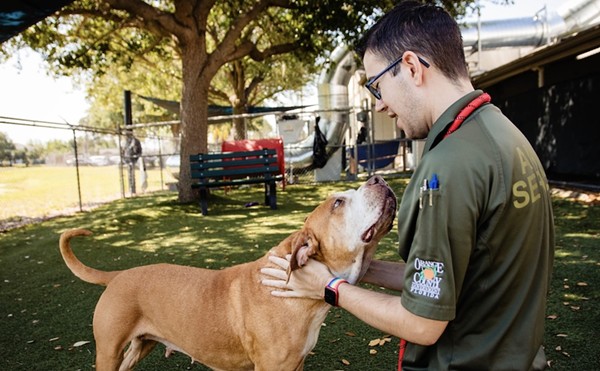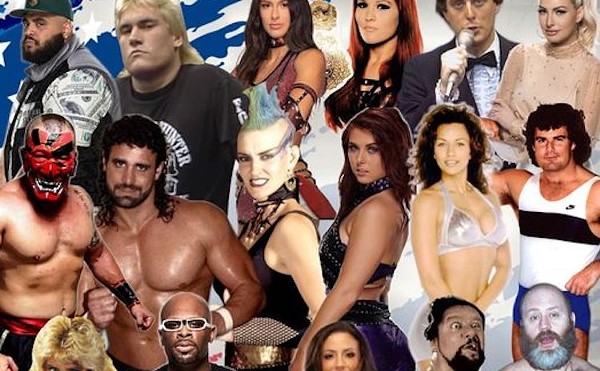I know it's wrong, narrow-minded, some even think dangerous. But when the subject of babies comes up my response is immediate and always the same: "Boy. I want a boy." The word pops out like something from a toaster. Whether he's a senator or janitor doesn't matter; me, only younger and with no ovaries, that's what I want. Everyone wants for their kids what they didn't have; for some it's money, for some it's education. For me it's a penis.
My boy-worship is not solitary: In some countries girl children are left on mountainsides to die of exposure. I wouldn't go that far. But my PC training has never been able to shout down my sexist gut. "Boys are cheaper," I'll say, or something equally flip. But the real reason I want a boy is an admiration too profound for casual chat. Nothing is as free as a boy. Nothing runs as wild, hurts as deeply or tries as hard. They're humbling to watch, balancing their strengths and sensibilities on the tightrope to adulthood. If they maintain their balance, they'll be the kind of men we call "real." But first they're real boys. And they're in real trouble.
Warning shots
If we were able to hit the snooze alarm on the first few clues, the sound of gunfire in Colorado may have forced us to wake up to the problems once and for all. While everything from somnambulist parents to Marilyn Manson have been cited for the unleashed wrath of Dylan Klebold and Eric Harris, it seems possible, especially after reading "Real Boys," by William Pollack, that the sparks for that bonfire might be in the way all boys are raised. Pinned between their image and their natures, boys are caught in an internal crossfire that's ripping them apart, and many other things with them.
Boys are up to six times more likely to commit suicide than girls, 10 times more likely to suffer an emotional disorder. The book "Reviving Ophelia" showed how adolescent girls hide their true selves and develop a silent, compliant shell to deal with impossible, limiting cultural images. "Real Boys" asks, "What about Hamlet?" -- who meets a tragic, needless end like boys do now. Girls have improved under the attention they have received. Boys are suffering silently. And silence is the key. Girls will talk to each other. Boys live by "the boy code," Pollack says: "Everything is just fine."
In Colorado, as in every other school massacre in recent months, no one had any idea these boys were about to erupt. Everyone thought everything was just fine.
The boy code is so carved into male children that we don't see it, and that's the point: We don't want to see it. Male infants are more expressive than females, but by age 5 the behavior is reversed because we unconsciously discourage that expression. We tell boys to toughen up, fix things themselves, don't come crying to me. Then we wonder why they never tell us anything and we didn't know anything was wrong. Even well-meaning parents can accept "that's just how boys are," reserved, removed, "fine," until that boy brings home a black eye, an STD or an assault rifle. If punching a locker isn't enough to make a jaded old fart like you feel better, it's not enough to make a kid, who isn't so wise to the world, feel better, either. They have to learn to speak, Pollack says, and we have to learn to hear.
As early as age 5, boys are nudged away from their mothers and encouraged to be tough. Having mom cool off to them with no explanation and nothing else to turn to leaves a feeling, Pollack says, that can only be equated to a broken heart. Parents draw this line of emotional separation and then bitch about the chasm of alienation between them and their teen-age boys. Boys will do anything to avoid the pain the initial severance caused them, and they're not going to make themselves vulnerable only to be cut off again, Pollack says. The clue is not to cut them off to begin with.
Advice and consent
"Real Boys" offers other causes but also suggests solutions to reduce the cluelessness: (a) Boys don't learn passively, they learn actively. They might want to talk, but they have to do it while tossing a football or painting the house. Do something just to be in his world with him, like Jane Goodall did with the chimps. (b) Boys have an emotional schedule. They can't open up at will, but they will come around; even "When's dinner?" may be a clue they want to talk. Try them. (c) Open up: Tell him what a geek you were in school, how scary your first sexual experience was, something embarrassing. Seeing you as vulnerable will make them feel less so. Empathy is a connector.
Mostly, tell them they aren't monsters. Can you imagine what boys must think of themselves, considering the lazy, idiotic, brutal, lying date-rapists men are portrayed as on TV? Like you'd tell a girl she doesn't have to be a starving doormat, tell your boy he doesn't have to be a monster.
We prize boys because they inspire admiration and love in us. But for all this worship we push away the thing we claim to love so much. You don't have to be left on a mountainside to die. You can die standing upright in the middle of suburbia, not from exposure, but from lack of it.
















